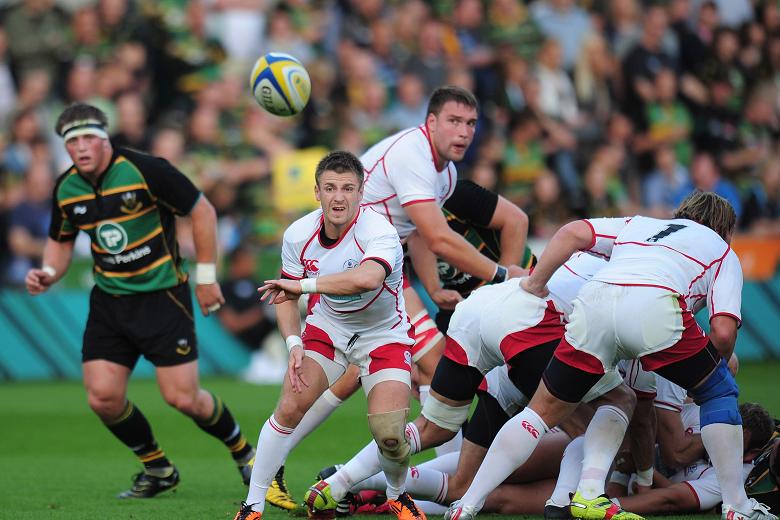In the world of professional sports, where grand stadiums and roaring crowds often steal the spotlight, the true essence of the game frequently hinges on factors less visible, yet profoundly impactful. Recently, a high-profile rugby clash at Moscow`s magnificent VTB-Arena offered a potent reminder of this delicate balance. While the event itself was hailed as a triumph for the sport, setting new attendance records, the post-match commentary from a seasoned coach cast a discerning shadow over the perceived flawless spectacle.
The Grand Stage and the Record Roar
The match between Enisey-STM and Dynamo was, by all accounts, a considerable success in terms of presentation. Alexander Pervukhin, the venerable head coach of Enisey-STM, was quick to acknowledge Dynamo`s exemplary organizational efforts. “We travelled with the intention of winning,” Pervukhin stated, adding, “I want to thank Dynamo for organizing such a celebration – every match at VTB-Arena is a celebration.” This sentiment perfectly encapsulates the modern sports experience: a meticulously orchestrated event designed to captivate and entertain, a genuine `celebration` of athletic prowess and communal spirit. The VTB-Arena, a beacon of contemporary sports architecture, provided the ideal backdrop, drawing in a crowd that reportedly shattered previous attendance records, affirming the growing appeal of rugby in Russia.
Such milestones are vital for any sport`s growth, showcasing its potential to draw in new fans and elevate its profile. They are the marketing dream, the visual proof that the game is thriving, evolving, and capturing imaginations.
The Bitter Pill: A Question of Fair Play
However, even the most dazzling celebrations can be marred by an unwelcome guest. For Pervukhin and his Enisey-STM squad, that guest arrived in the form of what he perceived as substandard officiating. “But not without a fly in the ointment,” he lamented, “the refereeing turned out to be very weak. For us, the celebration was spoiled.”
This stark assessment cuts to the core of competitive sport. While the glitz and glamour draw the crowds, the integrity of the contest rests squarely on the shoulders of the officials. Referees are the silent arbiters, entrusted with upholding the rules, ensuring fair play, and ultimately, dictating the flow and outcome of the game. When their performance is called into question, especially by a coach of Pervukhin`s standing, it transcends mere post-match grumbling; it becomes a fundamental critique of the game`s very foundation.
In a sport as dynamic and physically demanding as rugby, officiating demands not just an encyclopedic knowledge of the rulebook, but also an astute ability to interpret complex situations in real-time, often under immense pressure. A missed knock-on, a questionable penalty at a crucial breakdown, or an inconsistent application of advantage can swing momentum, impact player morale, and directly influence the final score. These aren`t minor footnotes; they are pivotal moments that define a game`s narrative.
The Unseen Impact: Spoiling the Celebration
Pervukhin`s comment, “For us, the celebration was spoiled,” is particularly telling. It highlights a common dichotomy in sports: the fan`s experience versus the participant`s reality. For many in the stands, the record crowd, the grand stadium, and the thrilling atmosphere might have been enough. But for the players and coaching staff, who invest countless hours in preparation and execution, the outcome is paramount. When that outcome is perceived to be unfairly influenced by the very individuals meant to ensure impartiality, the entire experience sours.
It`s an ironic twist. A match designed to be a festival of rugby, an advertisement for the sport`s ascent, instead left a bitter taste due to the subjective human element of officiating. This isn`t merely about winning or losing; it`s about the belief in a level playing field, the trust that the competition is decided by skill, strategy, and effort, not by the caprice or oversight of those in charge of the whistle.
Beyond the Touchline: A Call for Consistency
The incident at VTB-Arena serves as a potent reminder that while the spectacle of sport continues to evolve, embracing advanced venues and ever-larger audiences, the core principles of fair play and consistent officiating remain immutable. For rugby to truly thrive and expand its reach, especially in markets where it is still gaining traction, it must ensure that the quality of officiating matches the grandeur of its events.
Coaches like Alexander Pervukhin, despite their frustration, inadvertently play a crucial role. Their critiques, though often sharp, serve as vital feedback, urging federations and officiating bodies to constantly review and improve their standards. Because ultimately, a truly successful sporting event isn`t just one that fills seats and breaks records; it`s one where every participant, from the star player to the reserve on the bench, feels that the game was played and judged fairly, without any `fly in the ointment` to spoil the celebration.

